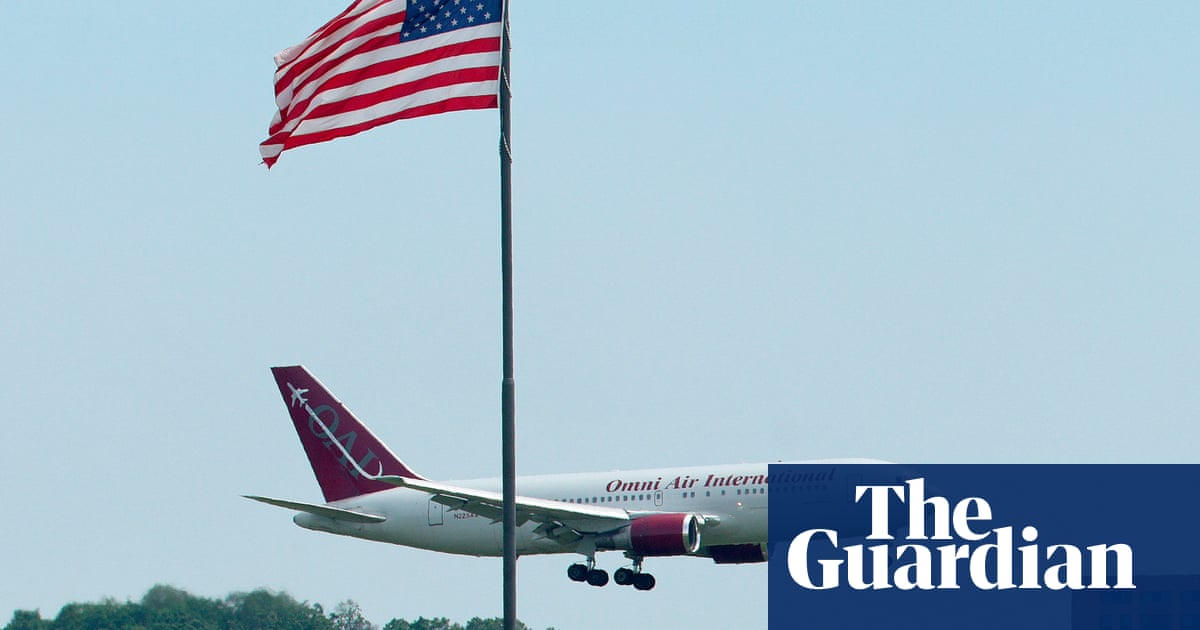When Essi Farida Geraldo, a Lomé-based architect, heard about partial restrictions on travel to the US from Togo as part of thetravel bans announced by Donald Trumpon Thursday, she lamented losing access to what many young Togolese consider to be a land of better opportunities.
“The United States was the Togolese’s El Dorado,” Geraldo said. “Many people go to work in the US to save money and support their families or projects inAfrica… This will force the country to really develop stronger partnerships that exclude the US.”
Trump’s order, which is to come into effect on Monday, prohibits people from seven African countries – Chad, the Republic of the Congo, Equatorial Guinea, Eritrea, Libya, Somalia and Sudan – from entering the US, making Africa the worst-affected continent. People from another three African countries – Burundi, Sierra Leone and Togo – will be subject to partial restrictions, meaning they will not be able to travel to the US on certain visas.
For Geraldo, an alumnus of the Mandela Washington Fellowship for Young African Leaders programme instituted by the Obama administration, the new restrictions compound the harm from Trump’s foreign aid cuts, which made it harder for her to access funding for social projects in the tiny west African state.
Mikhail Nyamweya, a political and foreign affairs analyst, said the new travel bans and restrictions would “bring about a pattern of exclusion” and “may also institutionalise a perception of Africans as outsiders in the global order”. “In the short term, they will restrict access to education, innovation and professional mobility. In the long-term, they risk alienating African partners,” he said.
The White House deputy press secretary, Abigail Jackson, said the countries on the list “lack proper vetting, exhibit high visa overstay rates or fail to share identity and threat information”. “President Trump is fulfilling his promise to protect Americans from dangerous foreign actors that want to come to our country and cause us harm,”she said on X, adding that the restrictions were “commonsense”.
This interpretation was firmly rejected by Abby Maxman, the president and CEO of Oxfam America, whosaidthe ban “deepens inequality and perpetuates harmful stereotypes, racist tropes and religious intolerance”. She said: “This policy is not about national security. It is about sowing division and vilifying communities that are seeking safety and opportunity in the US.”
The policy has deepened a cloud of uncertainty in the affected countries, especially after the US government announced in May that visa appointments for students wishing to study in its universities had been suspended pending expanded social media vetting.
There is also fear across Africa about a proposed tax on remittances under Trump’sOne Big Beautiful Bill Act, which is under parliamentary review. If passed into law, the 3.5% tax could severely dent the GDP of many nations, for whom diaspora remittances are a huge contribution.
Geoffrey Gichohi, a 34-year-old nurse working in Minnesota, recently sent money to his mother in Kenya – which is not covered by the travel ban – via an app to pay for a concrete wall and a metal gate at their home.
Like many Africans abroad, he regularly sends money to his family members back home who rely on it for school fees, healthcare and other basic needs. A new tax – on top of sending and withdrawal fees – would make it more difficult, he said. “The parents back at home in Kenya are the ones who will suffer because they’ll have limited resources,” he said. “Personally, I hope the bill doesn’t get passed.”
Human rights activists have criticised the restrictions and planned tax, saying they unfairly target citizens of countries in the global south. Other experts say the moves could further damage US-Africa ties in an era of rising anti-western sentiments on the continent.
Feelings of despair are not universal, however. According to Jalel Harchaoui, an associate fellow at the Royal United Services Institute in London, many people in Libya will be unbothered by the new policies as the US is not a major travel destination for them.
“It’s not good, but it’s not noticed as something catastrophic,” he said. “People are barely paying attention to [the travel ban] or the [proposed] remittance tax … if the same thing had happened to the UK it would be a major event, but not for the US.”
Authorities in many of the affected countries are yet to respond. However, on Thursday afternoon the president of Chad, Mahamat Idriss Déby, suspended the issuance of visas to US citizens, citing the need for reciprocal action.
“Chad has no planes to offer, no billions of dollars to give, but Chad has his dignity and pride,” he said in a Facebook post, referencing Qatar’s controversial gift to theTrump administration.
Over the last year, US and French troops have been forced to withdraw from military bases in Chad, which was previously a key ally in the Sahel for many western nations.
The reaction from Sierra Leone, another US ally in west Africa, was much mellower. “We have taken note of this proclamation,” said the information minister, Chernor Bah. “Our understanding is that the decision is based exclusively on visa overstay rates and that it does not reflect the broader state of US-Sierra Leone relations, which remain from our perspective strong and productive.”
